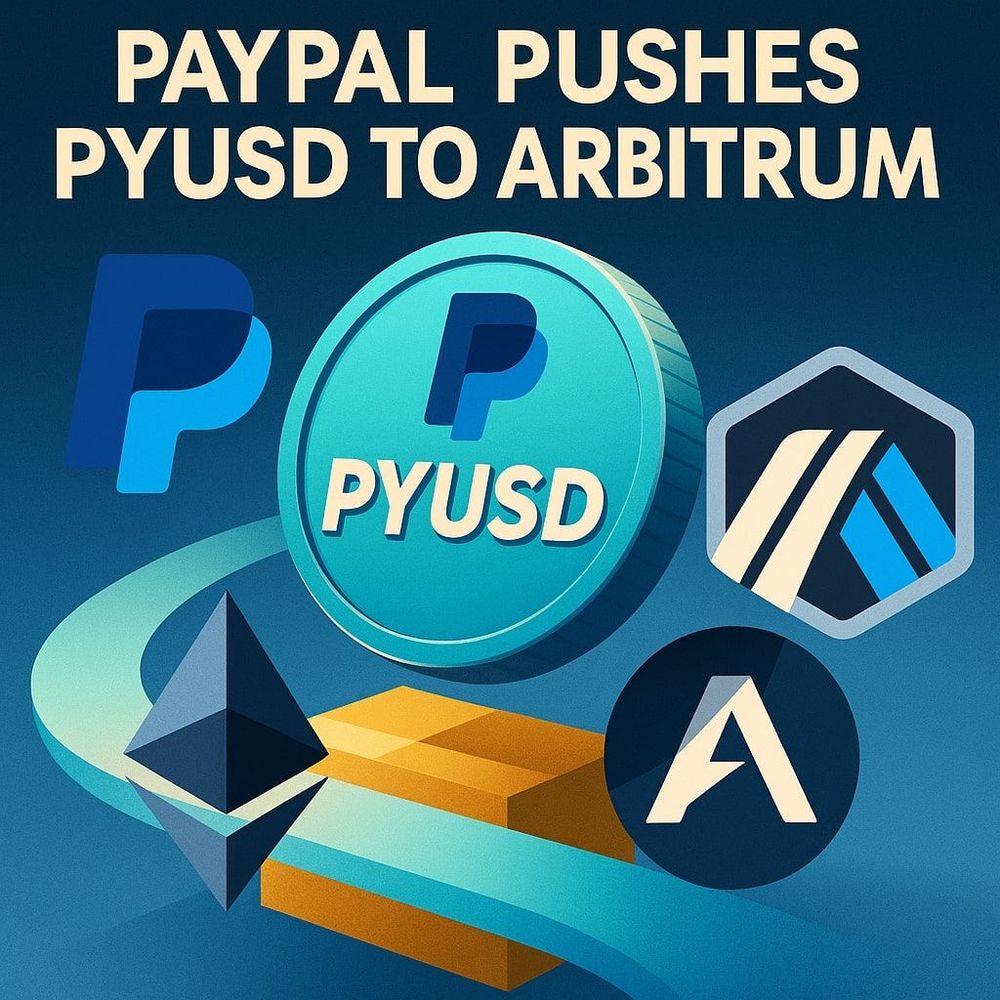PayPal Expands PYUSD Stablecoin to Arbitrum, Boosting Speed and Lowering Fees
🌀 PayPal Pushes PYUSD to Arbitrum — Stablecoin Now Moves Faster and Cheaper
PayPal’s stablecoin just got a serious upgrade. PYUSD, the payments giant’s dollar-pegged digital asset, is now quietly expanding to Arbitrum — Ethereum’s most popular Layer 2. Translation: faster, cheaper transactions and a major leap toward mainstream adoption.
No press release. Just a silent update to PayPal’s terms and conditions on July 16, now listing Arbitrum alongside Ethereum and Solana. But for the 430 million PayPal users worldwide? This move is anything but quiet.
🧠 Why It Matters: Arbitrum = Speed + Scale
Launched in August 2023, PYUSD was always about one thing: making money on-chain act like money IRL. Stable, liquid, and swappable. But on Ethereum L1? Gas fees kill the vibe. Enter Arbitrum — an L2 scaling solution that slashes costs and boosts speed without sacrificing security. It’s where the real DeFi volume is going. And now, it’s where PayPal wants to be.
Why Arbitrum?
- It’s Ethereum-compatible, but 10x cheaper.
- It processes transactions faster than most L1s.
- It already hosts major DeFi protocols that could integrate PYUSD.
🔍 What Changed in PayPal’s Terms?
The update didn’t come with fireworks, but it did include:
- Arbitrum added to PYUSD’s list of supported networks
- New transaction limits referencing Arbitrum
- Quiet confirmation of future PYUSD support on this L2
No official blog post. Just a stealth edit that developers (and degens) caught first. But this move aligns perfectly with Paxos’s Arbitrum expansion from September 2024 — Paxos is the actual issuer of PYUSD, remember?
💰 PYUSD’s Big Picture Play
PayPal isn’t just dipping its toes into crypto anymore. It’s building a network-agnostic stablecoin that:
- Works across Ethereum, Solana, and now Arbitrum
- Can be used in DeFi, e-commerce, and international payments
- Follows strict compliance (MiCA-friendly, U.S. regulated)
This makes PYUSD a serious player in the stablecoin war, competing with Circle’s USDC and even Tether’s USDT — but with the full weight of PayPal’s fintech clout behind it.
📦 What's Next?
While PayPal hasn’t publicly hyped the Arbitrum integration (yet), the timing is strategic:
- MiCA is live in Europe → compliance is everything
- Ethereum gas is expensive again → Layer 2s are booming
- DeFi is waking back up → liquidity is key
PYUSD could soon be natively swappable in Arbitrum-native apps like GMX, Radiant, or Uniswap L2 — putting real, regulated stablecoins right where users are actually transacting.
TL;DR
- PayPal’s PYUSD stablecoin is expanding to Arbitrum, per a July 16 update to its terms and conditions.
- Why it matters: Arbitrum offers faster, cheaper Ethereum-compatible transactions.
- Paxos is the issuer, and already supports Arbitrum, so this is a logical next step.
- PYUSD now runs on Ethereum, Solana, and Arbitrum, making it a multi-chain digital dollar built for the real world.
- The silent move positions PayPal as a serious contender in the Layer 2 + stablecoin race.

Recent News
All Time High • Live
Have questions or want to collaborate? Reach us at: [email protected]










